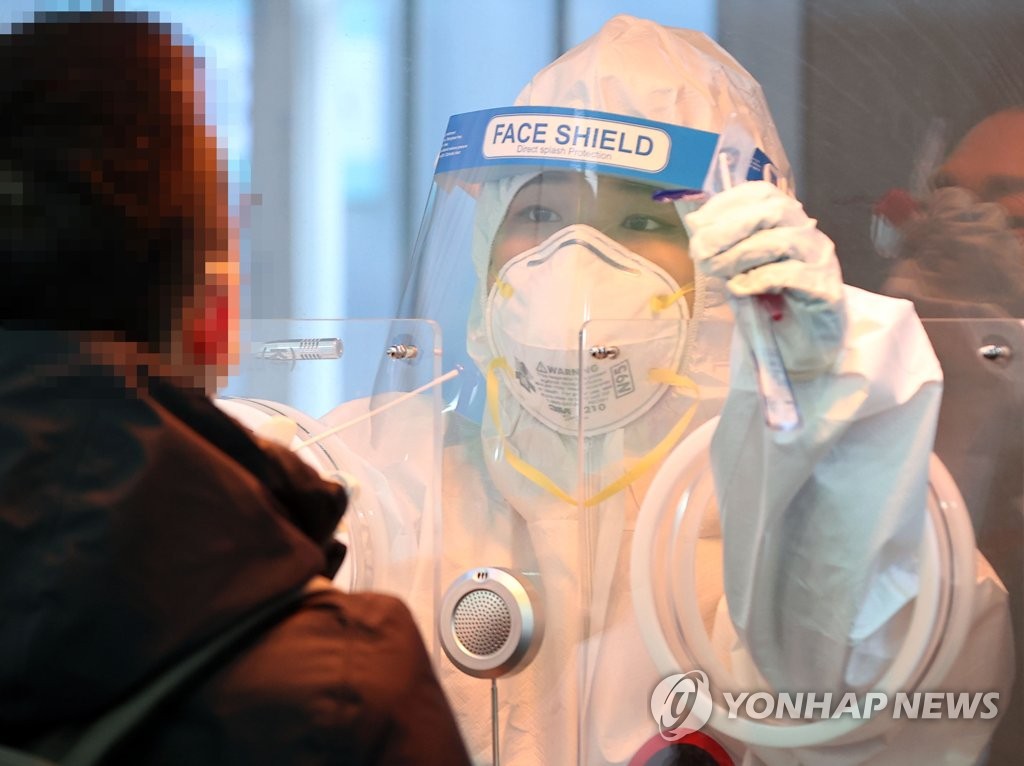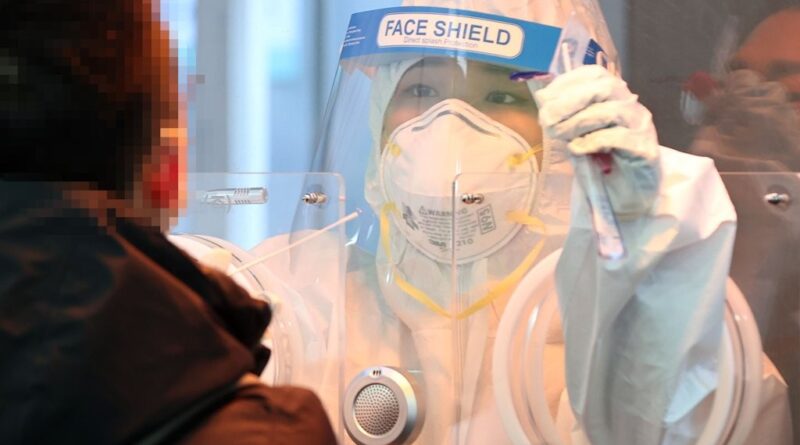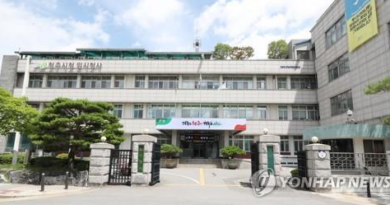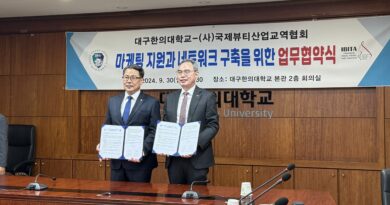S. Korea confirms 5 domestic cases of COVID-19 variants, total now at 39
South Korea’s health authorities said Wednesday they have identified five more cases of contagious variants of COVID-19, which were all domestically transmitted, sparking concerns over the spread of the more transmissible virus here.
The Korea Disease Control and Prevention Agency (KDCA) said four people were confirmed to have been infected with a variant from Britain and one tested positive for the South African variant, raising the total caseload to 39.

A health worker collects a specimen from a person for COVID-19 testing at a temporary screening station in Seoul on Feb. 3, 2021. (Yonhap)hide caption
Four patients with the British strain were infected after contact with their relatives who were placed under self-isolation in their homes in South Gyeongsang Province and South Jeolla Province, while one contracted the South African variant from a family member who traveled abroad, the KDCA said.
Authorities said they will step up monitoring of people who have come in contact with the patients, warning more cases of the new variants could be confirmed when test results come out.
“It is a matter of time for the virus variants to spread in the nation,” the KDCA said. “People will have to minimize contacts with the families of those who have traveled abroad.”
The authorities have said they remain vigilant against the possibility that highly transmissible new variants could spark another uptick in virus cases here.
The recent emergence of several COVID-19 mutations has complicated the global fight against the pandemic because they are more transmissible than the original one.
South Korea has extended the ban on passenger flights arriving from Britain, which has been in place since Dec. 23, until Feb. 11 to block the new virus variant that was first identified in Britain.
The KDCA has conducted further tests, known as next-generation sequencing, on arrivals from Britain and South Africa. The method provides an effective way to identify coronavirus strains and other pathogens without prior knowledge of the organisms.
Also, all foreign entrants must present papers showing negative PCR tests taken within 72 hours of their departure for South Korea.
The country added 433 cases on Wednesday, raising the total caseload to 79,311, according to the KDCA.








